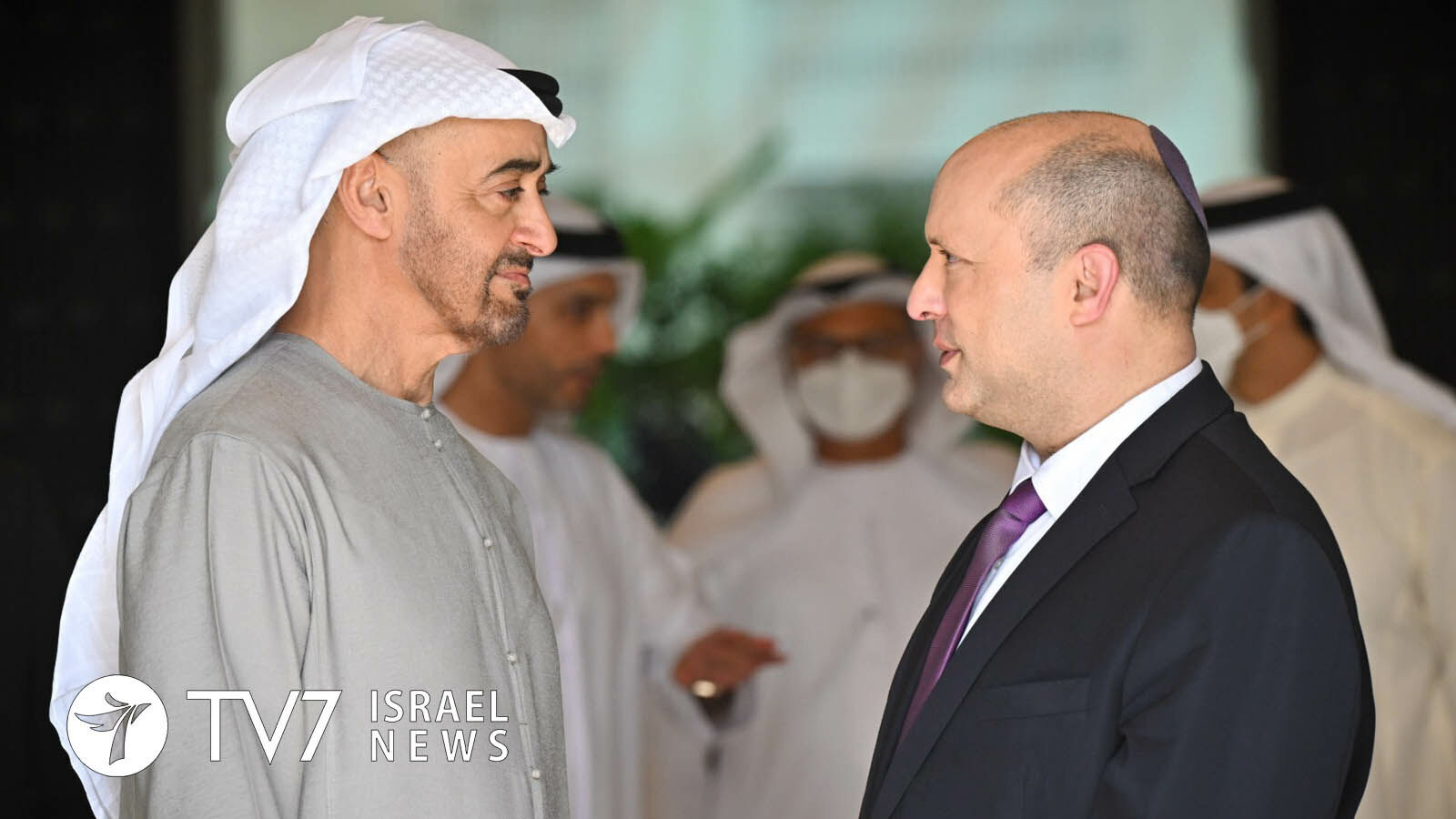At the invitation of United Arab Emirates (UAE) President Sheikh Mohammed Bin Zayed, Israeli Prime Minister Naftali Bennett made a one-day trip to the Persian Gulf nation.
By Jonathan Hessen and Erin Viner
The Israeli leader welcomed upon landing in Abu Dhabi with an honor guard and by UAE Foreign Minister Abdullah bin Zayed Al Nahyan.
Prime Minister Bennett then met privately for about two hours with UAE President Sheikh Mohammed Bin Zayed at his palace.
At the start of his visit, Prime Minister Bennett expressed his deepest condolences on the passing of the previous president, Sheikh Khalifa Bin Zayed, and congratulated Sheikh Mohammed Bin Zayed on his appointment.
According to a statement released by the Israeli government, the two leaders discussed several economic and regional issues; after which they held an expanded working meeting with the participation of their respective staffs.
The two leaders maintain regular contact. This was their third meeting in recent months, following talks in Abu Dhabi last December and in Egypt last March.
Bilateral ties have deepened since the signing of the 2020 Abraham Accords that normalized relations. Trade between the two countries has grown by hundreds of millions of dollars over the past year and is expected to further expand to an estimated $3 billion (about € 2,832 billion) per annum following the reaching of a recent landmark deal.
Ahead of his unexpected departure, Prime Minister Bennett referred to UAE President Sheikh Mohammed Bin Zayed as “a man of vision and a brave leader,” adding that, “together, we will take to the special bond that has been woven between our countries to the next level — for the growth and security of both our peoples.”
In related developments, a senior member of the US State Department’s negotiating team tasked with efforts to rescue the 2015 Joint Comprehensive Plan of Action (JCPOA) nuclear agreement with Iran said there are clear signs that Saudi Arabia is moving toward normalizing relations with Israel.
Ambassador Dan Shapiro, who served as Washington’s envoy to Israel during the administration of former US President Barack Obama, made the remarks during an interview with CNBC’s “Middle East Matters” program.
“Israel of course signed a normalization agreement with four Arab countries; the United (Arab Emirates), Morocco, Bahrain and Sudan in 2020. Probably, those agreements would not have been signed without at least some signal of support from Saudi Arabia,” said Ambassador Shapiro, elaborating that, “It is clear that the new Saudi leadership, the young Saudi leadership, is moving in this direction. The trajectory is clear, they no longer see Israel as an enemy but rather as a potential partner – really a partner, actually, against common threats like Iran, like the proxy terrorist organizations that Iran sponsors. And, they want to do business with Israel, they want to do common security operations and Intelligence gathering with Israel – much of that coordinated with the United States under our CENTCOM military leadership in the region.”
While the upcoming regional trip by US President Joe Biden will serve as as “an important opportunity for the Saudis” to “take a step forward,” Shapiro expressed doubt that a formal Riyadh-Jerusalem normalization pact would be forthcoming during the visit. He did say, however that, “there is discussion around a very step forward, perhaps by the Saudi Arabia reclaiming sovereignty over two islands in the Red Sea that control the Straits of Tiran so that Israel would have confidence that it could continue to have freedom of navigation in those waters – and in exchange, Saudi Arabia might allow Israeli aircraft, civilian aircraft to over-fly Saudi territory.”
Underscoring that these “are two pretty significant steps in the direction of normalization” that President Biden and his team have been working on, the US Ambassador said, as important to American interests toward strengthening of a coalition of likeminded moderate partners in the region to support one another’s security and economic development needs.
